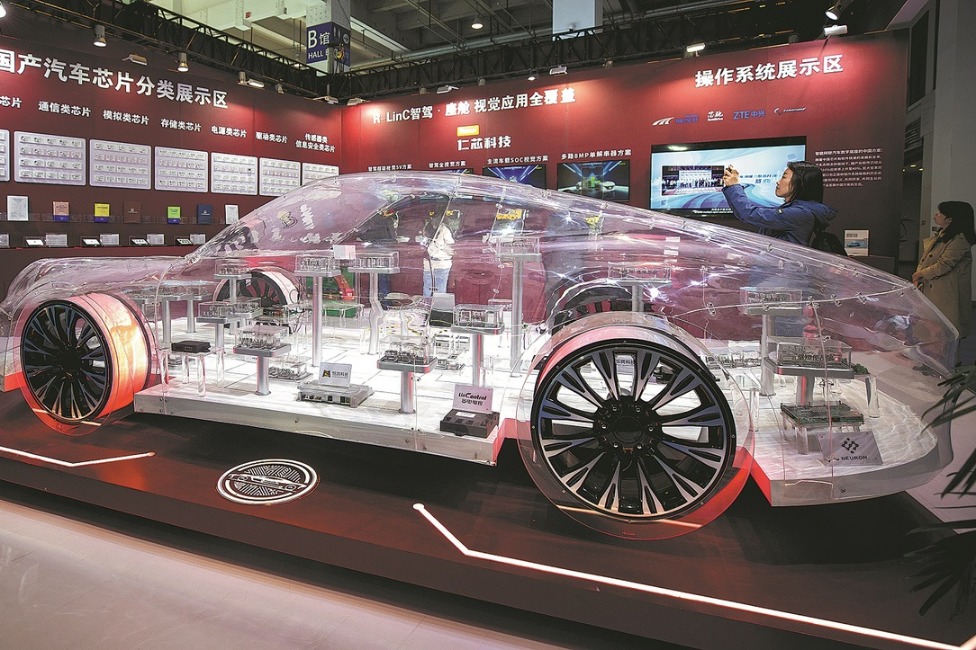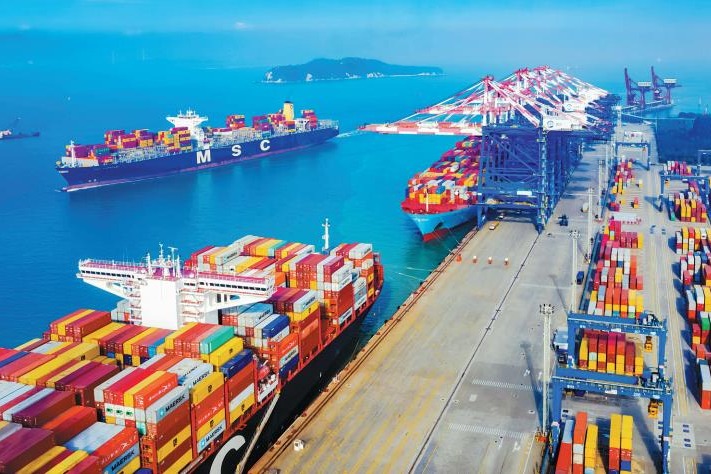Self-driving trucks poised to overhaul long-haul logistics
By FAN FEIFEI | China Daily | Updated: 2023-01-04 09:40

Commercialization of autonomous trucks will see speedy growth as self-driving startups are stepping up efforts to conduct road tests and mass-produce autonomous heavy duty commercial vehicles, fueled by rising demand for faster deliveries.
Chinese autonomous driving startup Pony.ai has been making forays into the self-driving truck segment. The company announced in November it had formed a strategic alliance with two partners — Chinese logistics company Sinotrans Ltd and machinery manufacturer Sany Group — to work on promoting smart logistics, high-level autonomous driving, and mass production of high-end smart heavy trucks.
Pony.ai has already established joint ventures with Sinotrans and Sany Heavy Truck, a subsidiary of Sany Group, in a bid to develop autonomous trucks for logistics transportation.
The latest move will enable the three parties to work together to build the industry's first smart heavy-duty truck fleets and provide smart logistics solutions.
Meanwhile, the first batch of 30 smart heavy-duty trucks produced by the JV between Pony.ai and Sany Heavy Truck rolled off the production line in November and were delivered to Cyantron, the smart logistics JV established by Pony.ai and Sinotrans. Over the next three years, Cyantron will purchase an additional 500 autonomous heavy duty trucks.
Li Hengyu, vice-president of Pony.ai and head of the company's truck division, said there is huge development potential for autonomous driving in the logistics segment, and the core value of self-driving trucks is to liberate manpower when facing huge driver shortages in the sector.
"We have been exploring how to empower and change the logistics industry with autonomous driving technologies," Li said. The company hopes to test self-driving trucks on more expressways, providing safer and more effective solutions to fill the labor gap, as well as improve logistics efficiency.
The company completed the country's first test of high-level autonomous trucks on open expressways in December 2021. The vehicles under normalized testing were autonomous driving trucks developed on the FAW Jiefang J7 vehicle platform, which is mainly used for logistics and is able to achieve L4 autonomous driving on busy expressways.
According to a report by Beijing-based think tank EqualOcean, the number of heavy-duty trucks in China's logistics system is expected to reach 6.27 million in 2030, with revenue from autonomous trucks hitting 853.9 billion yuan ($123.9 billion) by then.
"Road conditions that autonomous trucks face are simpler than those faced by self-driving, passenger-carrying taxis, given that there are no traffic lights or passengers once they get on expressways," said Zhang Xiang, a researcher at the Jiangxi New Energy Technology Institute.
Zhang said autonomous trucks can be equipped with more advanced sensors and radars, and the large-scale application of self-driving trucks in logistics will reduce delivery costs, save workforce costs, enhance operational efficiency and make freight transportation safer.
The global self-driving truck market may have generated as much as $1 billion in revenue in 2020 and is further expected to generate $12.67 billion by 2025, growing at a compound annual growth rate of 10.4 percent from 2020 to 2025, according to Allied Market Research, a global consulting services provider.
Plus, an autonomous trucking startup, is speeding up mass production and global deployment of its autonomous driving technology. It has collaborated with FAW Jiefang, China's oldest and largest truck manufacturer, to develop autonomous trucks, and completed a driverless L4 truck demonstration on the Wufengshan highway in Jiangsu province in June 2021.
"Thanks to the convergence of machine learning and artificial intelligence, big data, mobility and advanced sensors, the autonomous revolution is on the horizon. Autonomous trucks are one of the best applications for autonomous driving in the near term, and this application is close to becoming a reality," said David Liu, CEO and co-founder of Plus.
At present, autonomous trucks are mainly tested or applied in relatively simple scenarios, such as ports, mines and some closed roads, said Jiang Zheng, an expert at the research and development center affiliated with GAC Group.
Jiang said that compared with self-driving passenger-carrying robotaxis, the routes of autonomous trucks are more fixed, which provides certain conditions for the large-scale commercialization of autonomous driving technology.
"Logistics companies see rising demand for autonomous trucks, which can help increase work efficiency, save labor costs as well as reduce delivery and transportation costs," said Jiang, adding that he is bullish on autonomous truck prospects.
























